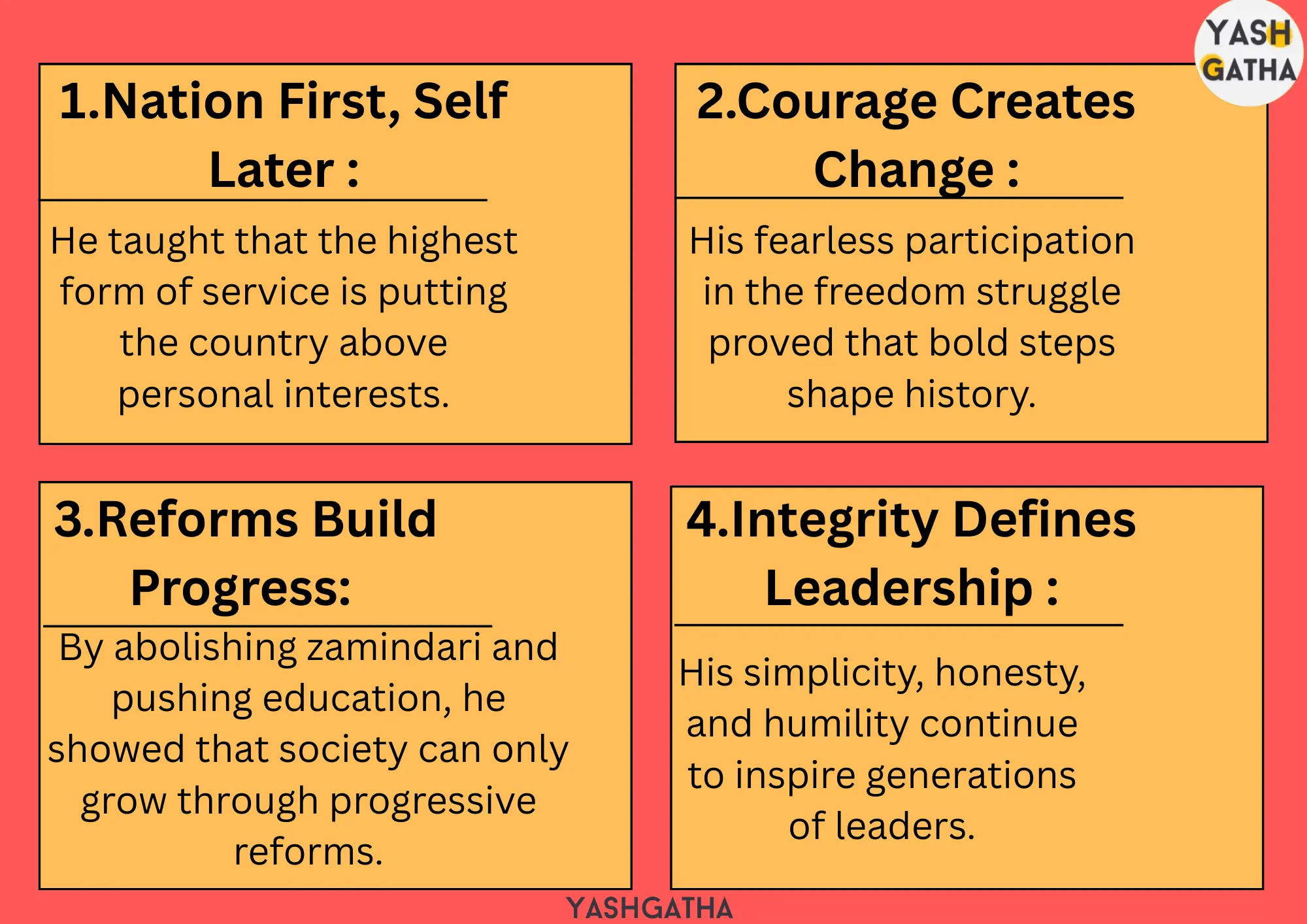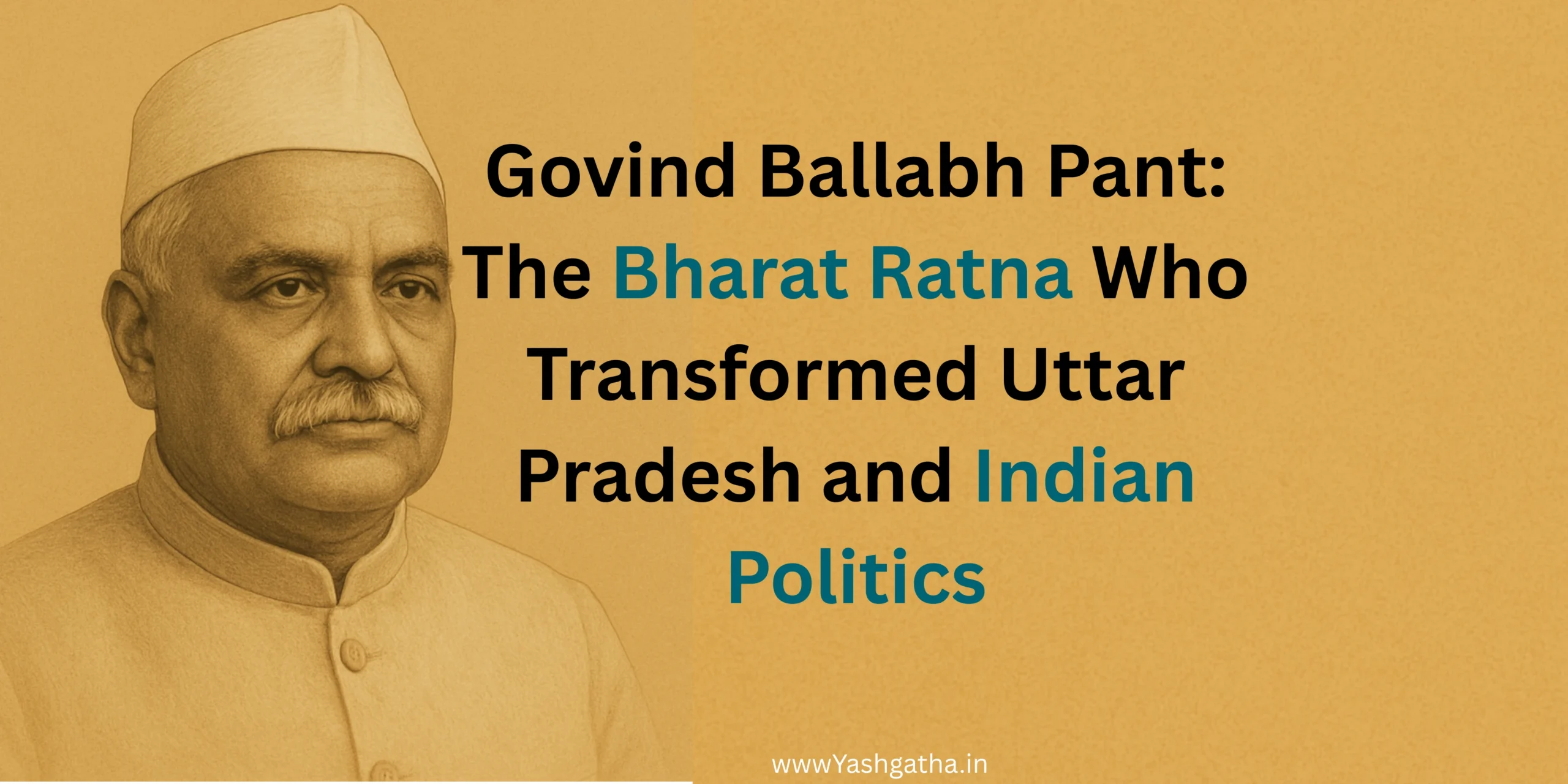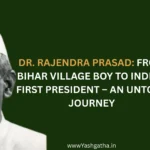Pandit Govind Ballabh Pant, born in Khunt village of Almora in present-day Uttarakhand, rose from humble beginnings to become one of India’s greatest freedom fighters and reformers, earning the Bharat Ratna in 1957 for his unmatched contribution to politics, social reforms, and nation-building, and is forever remembered for his words, “The biggest service to the nation is to place her interest above one’s own.”
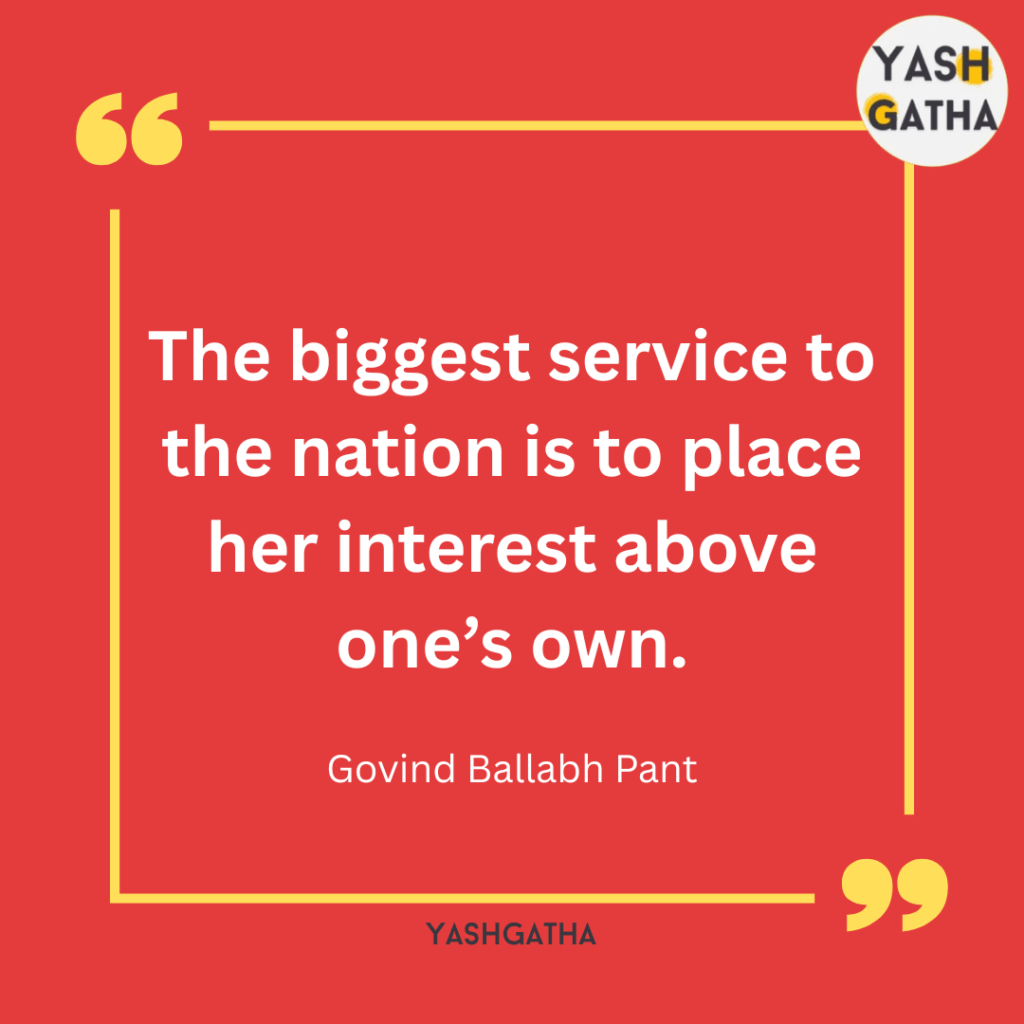
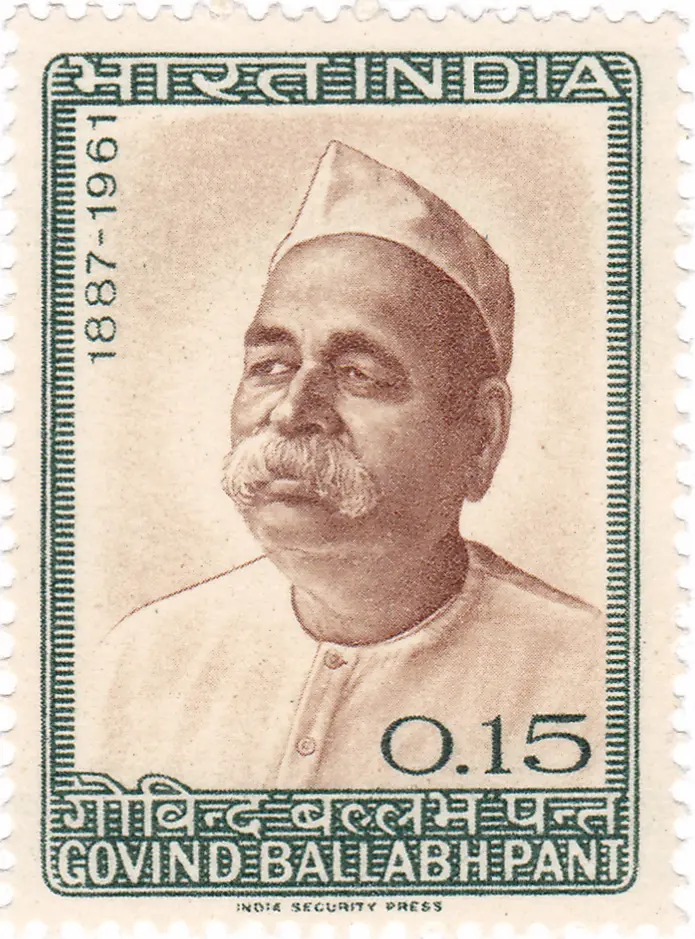
Govind Ballabh Pant stamp 1961
Govind Ballabh Pant, one of India’s most respected freedom fighters and reformers, played a key role in shaping the nation’s political and social fabric. From leading the freedom struggle to serving as the first Chief Minister of Uttar Pradesh and later as India’s Home Minister, Pant’s.legacy is marked by courage, vision, and progressive reforms. Honored with the Bharat Ratna in 1957, his life story is a timeless inspiration for nation-building and leadership.
Early Life & Challenges :
Govind Ballabh Pant was born on 10 September 1887 in a small village called Khunt in Almora, nestled in the Kumaon hills of present-day Uttarakhand. Growing up in a modest family, he experienced firsthand the struggles of rural life, where access to resources and opportunities was limited. Yet, his sharp intellect and thirst for learning set him apart from an early age.
Pant’s father, a government officer, encouraged him to pursue education, and his mother instilled in him strong values of compassion and discipline. Despite financial limitations, he excelled in studies and went on to complete his law degree from Allahabad University, where he emerged as a brilliant student with a strong sense of justice.
The biggest challenge he faced was balancing his family’s expectations with his own dream of serving the nation. Instead of choosing the safer path of a successful law career, Pant embraced the hardships of the freedom struggle, risking imprisonment and personal sacrifice. He also confronted social evils like untouchability and gender inequality, often standing alone against rigid traditions of his time.These early struggles not only shaped his leadership qualities but also gave him the resilience and empathy that later defined his political and social contributions.
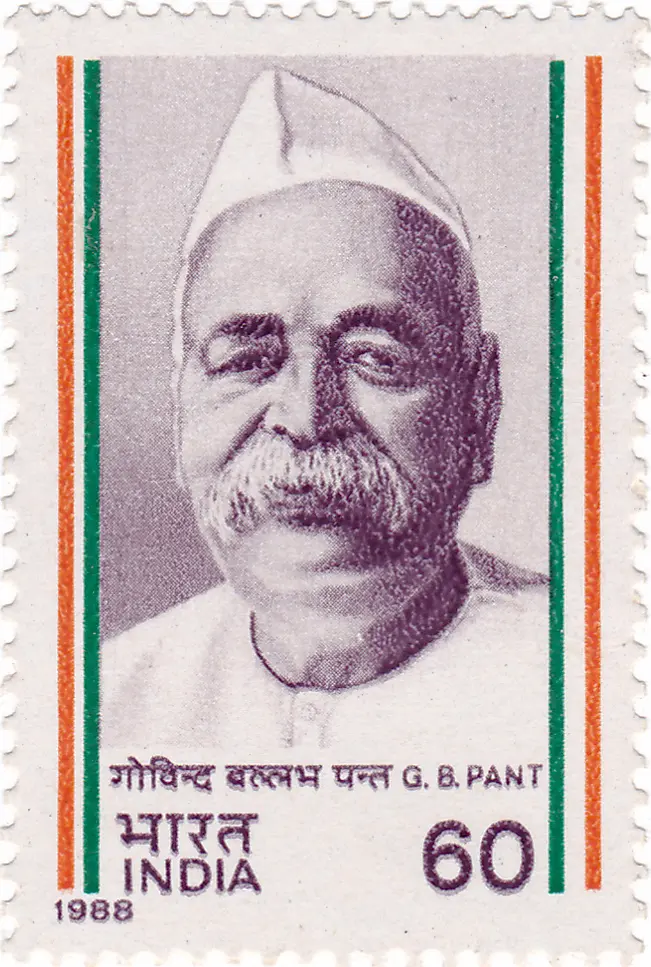
credit:Wikimedia Commons
Govind Ballabh Pant stamp 1988
The Turning Point :
The true turning point in Govind Ballabh Pant’s life came when he chose to give up a flourishing career in law to dedicate himself entirely to India’s freedom struggle. His journey is best understood through a timeline of defining milestones:
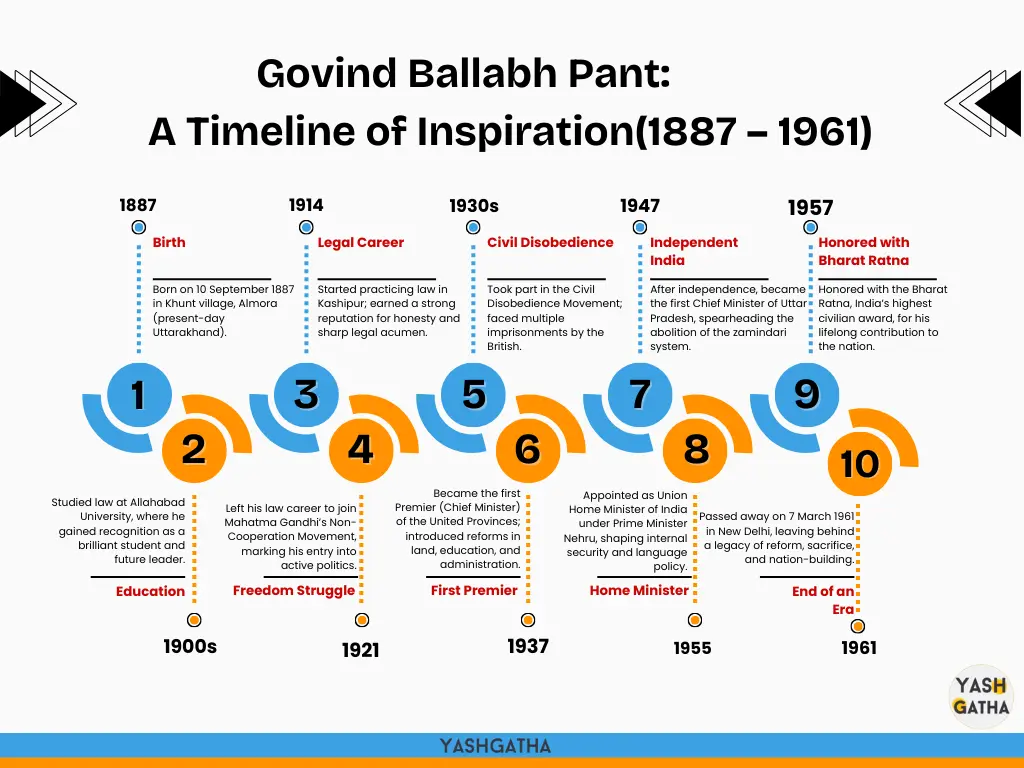
The Recognition & Award :
Govind Ballabh Pant’s decades of sacrifice and service to India’s freedom, governance, and social reforms were honored in 1957, when he was conferred the Bharat Ratna, the nation’s highest civilian award. This recognition placed him among the very first awardees of the Bharat Ratna, alongside C. Rajagopalachari and Dr. Sarvepalli Radhakrishnan. The award symbolized not just his personal achievements but also his vision of a strong, united, and progressive India.
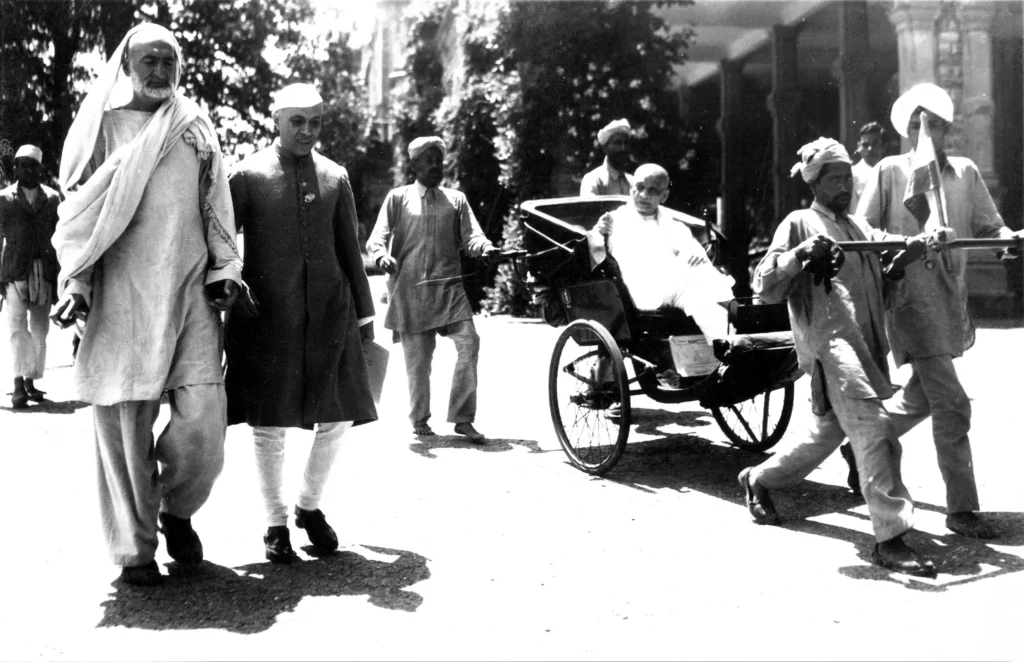
credit:Wikimedia Common
independence conference, 1946
Key Highlights of the Recognition:
1.First leader from the Kumaon region to receive the Bharat Ratna.
2. Recognized for his role as Chief Minister of Uttar Pradesh, where he abolished the zamindari system and advanced education reforms.
3. Honored for his contribution as Union Home Minister, safeguarding India’s unity and strengthening its democratic foundations.
4. His award was celebrated nationwide as a tribute to selfless political leadership rooted in integrity and sacrifice.
What Changed After the Awards :
Receiving the Bharat Ratna in 1957 further cemented Govind Ballabh Pant’s legacy as one of the foremost architects of modern India. While he had already left an indelible mark on politics and governance, the award amplified his influence and respect across the nation.
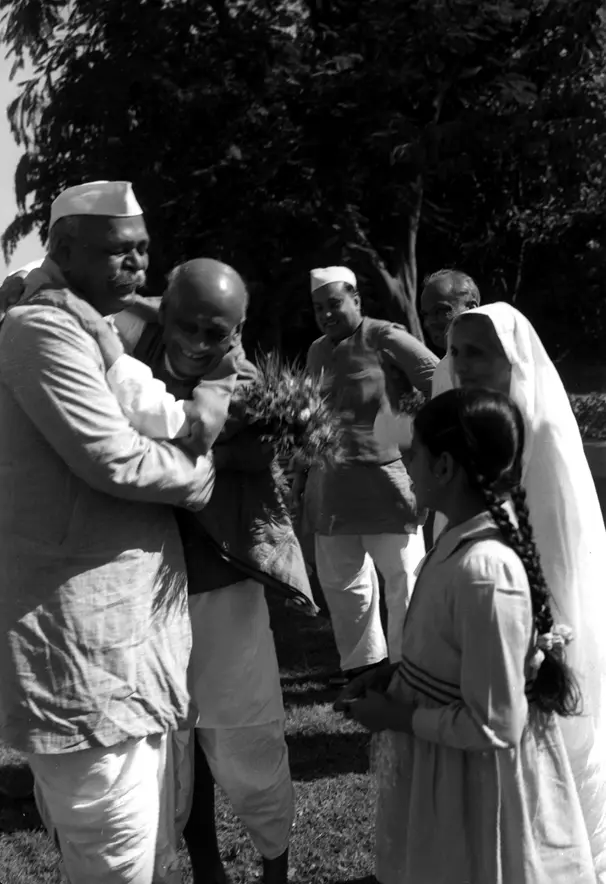
credit:Wikimedia Commons
independence conference, 1946
Key Changes After the Award:
- His stature grew beyond Uttar Pradesh, making him a national symbol of integrity and leadership.
- As Union Home Minister, his authority strengthened, allowing him to push forward language and security policies with wider acceptance.
- His speeches and ideas began to be quoted more frequently in Parliament, academia, and public discourse.
- Younger leaders and reformers looked to him as a mentor and role model, inspired by his humility and sacrifice.
- The award highlighted his lifelong dedication to India’s unity, ensuring his ideals continued to guide political thought even after his passing.
Yashgatha Takeaways :
Govind Ballabh Pant’s journey teaches us that true leadership is measured not by power, but by sacrifice and service. From giving up a successful law career to dedicating his life to India’s freedom, governance, and social reform, he showed that progress comes through courage, humility, and vision.
